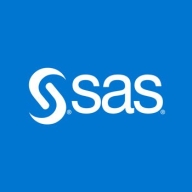

Find out what your peers are saying about Palantir, Informatica, Oracle and others in Data Management Platforms (DMP).

Informatica Intelligent Data Management Cloud (IDMC) is a robust platform used by banks, financial institutions, and health sector organizations for data management, governance, and compliance.
IDMC provides comprehensive tools for data discovery, profiling, masking, and transformation. It supports Salesforce integration, real-time data streaming, and scalable data management solutions. Health organizations manage national product catalogs while financial entities focus on data protection and regulatory compliance. Its intuitive interface, flexible features, and robust tools make it valuable across sectors, though enhancements in data integration and human workflow are being sought.
What are the most important features?
What benefits and ROI should be considered?
Banks and financial institutions use IDMC for data masking, transformation, and compliance, while health sector organizations leverage it for national product catalogs. Industry applications focus on automating business processes, centralizing data, and managing data catalogs to meet regulatory demands and ensure data protection.
We monitor all Data Management Platforms (DMP) reviews to prevent fraudulent reviews and keep review quality high. We do not post reviews by company employees or direct competitors. We validate each review for authenticity via cross-reference with LinkedIn, and personal follow-up with the reviewer when necessary.